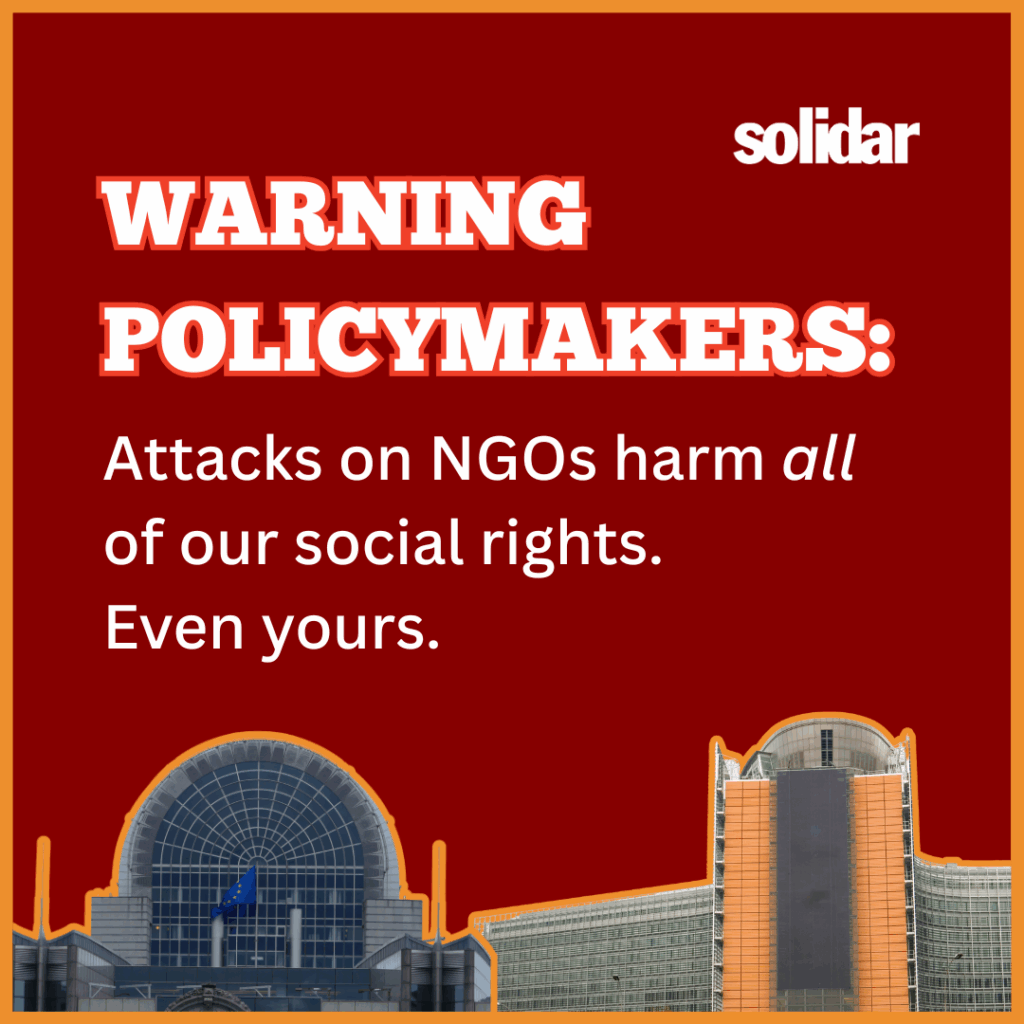
Civil society has a key role to play in protecting and promoting the social rights of people and communities across Europe. Whether enabling people to access crucial social services or fighting inequality by engaging directly with decision-makers, civil society organisations (CSOs) work every day to ensure we all have access to our social rights. Whether we realise it or not, we all depend on CSOs being able to carry out this work freely. However, civil society is increasingly facing barriers which prevent us from being able to perform this vital role in our societies. These barriers come in the form of attacks on our legitimacy and added value.
While civil society is no stranger to attempts to question and de-legitimise our key role in policy-making, over the past year we have seen these efforts intensify across Europe. In Brussels, NGOs came under attack from a false narrative used by certain factions of the European Parliament. Notable incidents included an attempt to baselessly claim that environmental NGOs receiving funding under the LIFE programme were being paid by the Commission to lobby MEPs on its behalf, as well as the more recent establishment of a working group in the Parliament to examine the transparency of funding being received by civil society groups in Brussels.
These actions are grounded in a narrative that claims that civil society acquires funding in an opaque manner in order to carry out dubious activities. Not only is this narrative untrue, it is harmful. NGOs play a crucial role in advocacy at the EU level, and civil society across Europe works every day to provide vital services to people and communities and to defend all of our social rights. By seeking to de-legitimise NGOs in Brussels, these political factions are doing damage to civil society at large. The more that CSOs have to defend their existence, the less time they can spend on the crucial role that they were established to carry out. What’s more, the more undue scrutiny CSOs are subjected to, the more likely these organisations are to lose out on the resources they need to perform their function.
In order for civil society to thrive, we must be trusted. And it’s not hard to figure out why certain political figures may try to jeopardise this trust and undermine independent voices that hold them to account. However, we can agree with them on one thing: more transparency is always a good thing! SOLIDAR spoke with its members across Europe to find out what civil society really does on a day-to-day basis – minus the spin. Stay tuned to find out.

